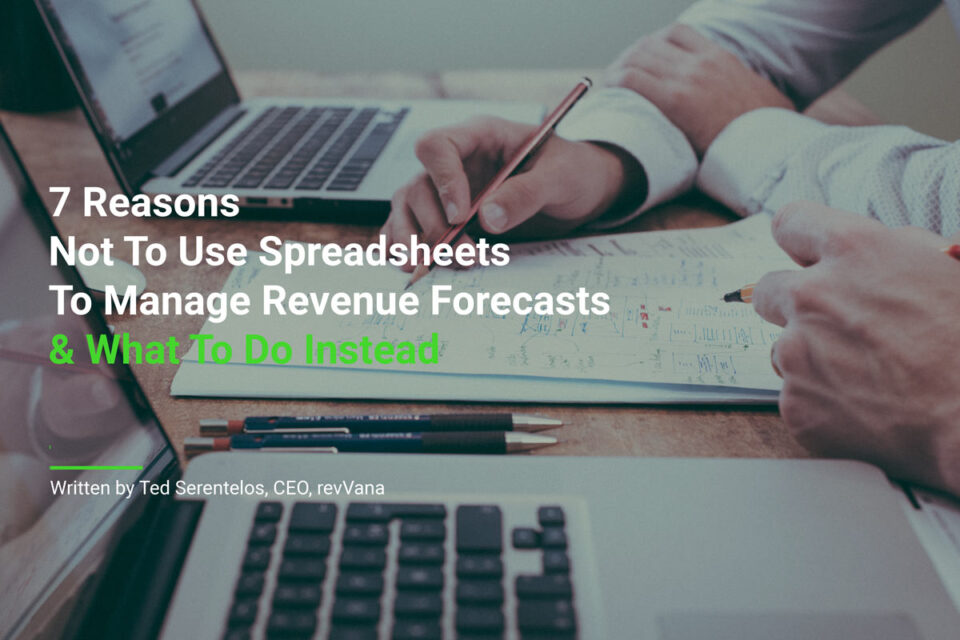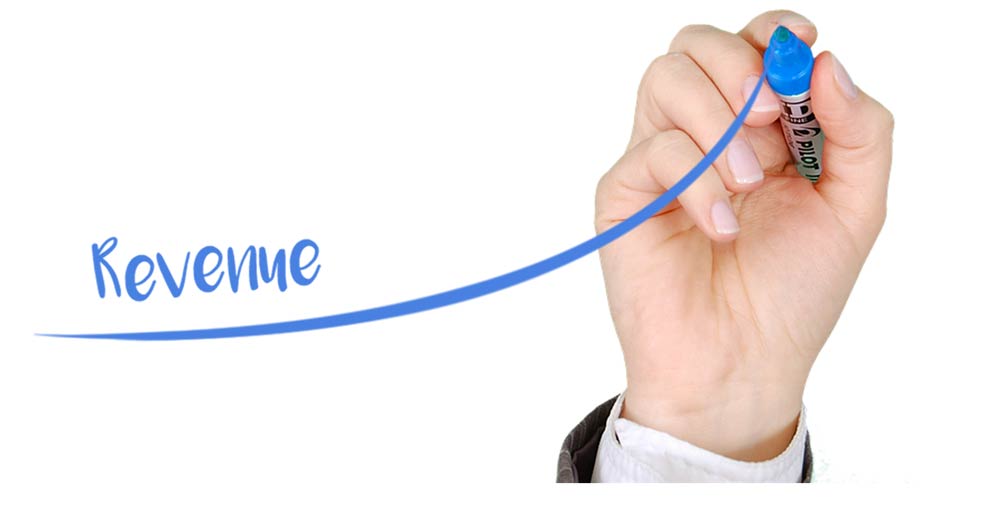

What Is Revenue Operations (RevOps) and Why Is It Important?
Learn about Revenue Operations (RevOps) as a strategy to align siloed revenue teams within B2B and B2C companies and unify revenue goals and targets.

Published on Tuesday, June 23, 2020
With revenue forecasting being so vital to a company’s success, it needs to be accurate. For the following reasons, we Do Not recommend using spreadsheets like Excel to do your revenue forecasting. Do not worry, we also provide a better solution that will make your revenue forecasting easier and more accurate.
Sales revenue is usually tracked and updated in a sales customer relationship management (CRM) system like Salesforce. So for an FP&A analyst or Sales Finance manager to forecast revenue, they have to manually export this information out of Salesforce and into a spreadsheet. This is just the start when updating, syncing, and organizing the data from the last time the report was run.
Once the sales information is exported the finance team gets involved and still has to modify the data to improve the reports to be more accurate. Not all sales in the pipeline will close, and oftentimes, not all of the “closed” deals will end up working out.
A $50,000 closed sales deal can mean a lot of different things to the finance team. Some common questions that financial planning analysts have to ask themselves to figure out how to best contribute the potential revenue are:
After the sales data is manually downloaded out of the CRM it is frozen in time. Meaning every hour the sales team is making more sales and changing deals, they are not being accounted for by Finance in their revenue forecast. Depending on the size of the sales team and the number of deals, revenue forecasts, and how long it takes to recast revenue plans from the pipeline, it can become inaccurate very quickly.
For some companies by the time they download and prepare revenue forecasts from the pipeline data for their revenue forecast the information is no longer relevant because so much has changed.
We are all human so mistakes happen. We don’t want those mistakes to happen on something as important as forecasting the revenue of the company.
It can happen to anyone, for example in 2012 JP Morgan was hit with a $6 billion trading loss due to Excel copy-and-paste error. You can check out six more examples of how spreadsheet errors have cost companies millions of dollars.
In addition rules applied to forecast revenue in spreadsheets may be inconsistent from period to period.
Removing the human element from collecting and modifying your data will reduce the chance of someone accidentally fat fingering or messing up a formula.
Excel and most spreadsheet tools are a single-user tool. This makes it difficult for teams to work on the same spreadsheet. Also, there may be certain assumptions, rules, or calculations that you don’t want everyone on the team to know about or have access to.
When working with team members, often each member will make a copy of the spreadsheet to do their own calculations. Trying to put all of these pieces and versions back together again without making any mistakes can be tedious and painful.
Once you have finished your report how are you going to share it with the C-Suite? Most likely it will be through email which can cause a lot of problems for businesses.
First, with confidential company information, you want to be careful to not accidentally send the email to an unintentional employee or worse somebody outside the company.
Second, some of these reports can get to be large in size and easily exceed the common 25MB size limit for most emails to be sent.

These common frustrations with spreadsheets led us at revVana to create a revenue forecasting software to help solve these problems for financial teams.
Our software lives within Salesforce which makes it simple to log-in at any time and have up-to-date and accurate reports that apply the customized logic and weighting set up by your finance team.
A lot of the time spent on these reports is from the financial analyst applying defined assumptions, rules, and calculations to the sales data to make their revenue forecasts more accurate.
With revVana’s software, you are able to program this logic so that it is applied to sales in real-time, right as they come in. revVana’s software can translate all of your sales deal data directly into financial forecasting friendly information that is easier to work with.
As we discussed the many problems of sharing important financial information over email. By having people use revVana directly within their Salesforce Sales Cloud environment, revVana eliminates sensitive revenue information getting mistakenly shared via email.
Also, since these reports are being updated in real-time, it does not take a lot of effort to export and share these reports with your team.
Change can be hard! Especially when a finance team has been using Excel since it came out in 1987! With revVana’s revenue forecasting software, you do not need to change any of your existing systems. revVana data can be easily consumed by financial planning and analysis systems (FP&A). In addition, if you still want to work in spreadsheets, you can export the finished reports and send them along to the executive team.
Ready For Pain-Free Revenue Forecasting? Get a free demo today.